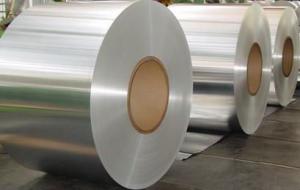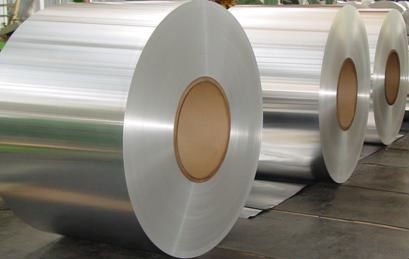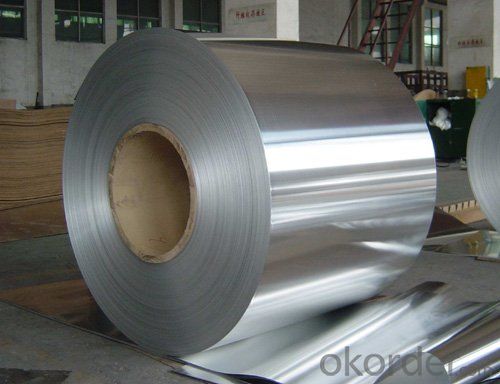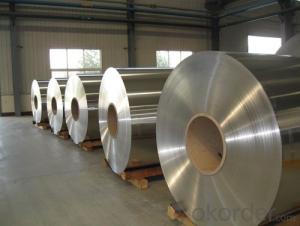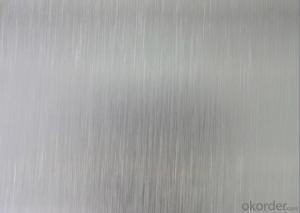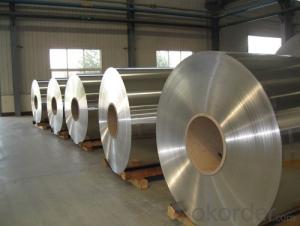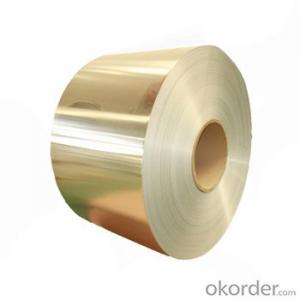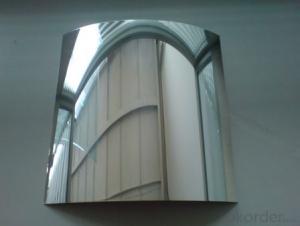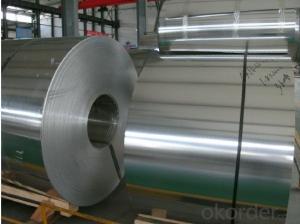Aluminum Sheets Missouri - Cold Rolling 1100/1050/1020/1060 Aluminum Coils for Decoration
- Loading Port:
- China main port
- Payment Terms:
- TT OR LC
- Min Order Qty:
- 5 m.t.
- Supply Capability:
- 600 m.t./month
OKorder Service Pledge
Quality Product, Order Online Tracking, Timely Delivery
OKorder Financial Service
Credit Rating, Credit Services, Credit Purchasing
You Might Also Like
Specification
Grade:
1000 Series,3000 Series,5000 Series
Surface Treatment:
Mill Finish
Shape:
Flat
Temper:
O-H112,Hard,Half Hard
Application:
Decorations,Door & Window
Thickness:
0.08-8mm
Width:
280MM -1500MM
Outer Diameter:
500 MM
Packaging:
Wooden pallet
Cold Rolling 1100/1050/1020/1060 Aluminum Coils For Decoration
Temper: h14,h16,h18,h22,h24,h26,h32,o/f
Thickness: o.o3mm-3.0mm
Width: 30mm-1700mm
Coating: pe(polyester),pvdf,epoxy
Painting thickness: standard 16-25 mic, max 40 mic
Color: according to ral colors or customer's samples
Packaging & Delivery
| Packaging Details: | Coil ID :508MM Coil Weight : about 2.5 tons or as per customers requirement Packing ; In Export Sea worhty wooden pallets Eye to wall or Eye to Sky One container can be loaded about 20 mts |
| Delivery Detail: | within 25 days after receiving L/C deposit |
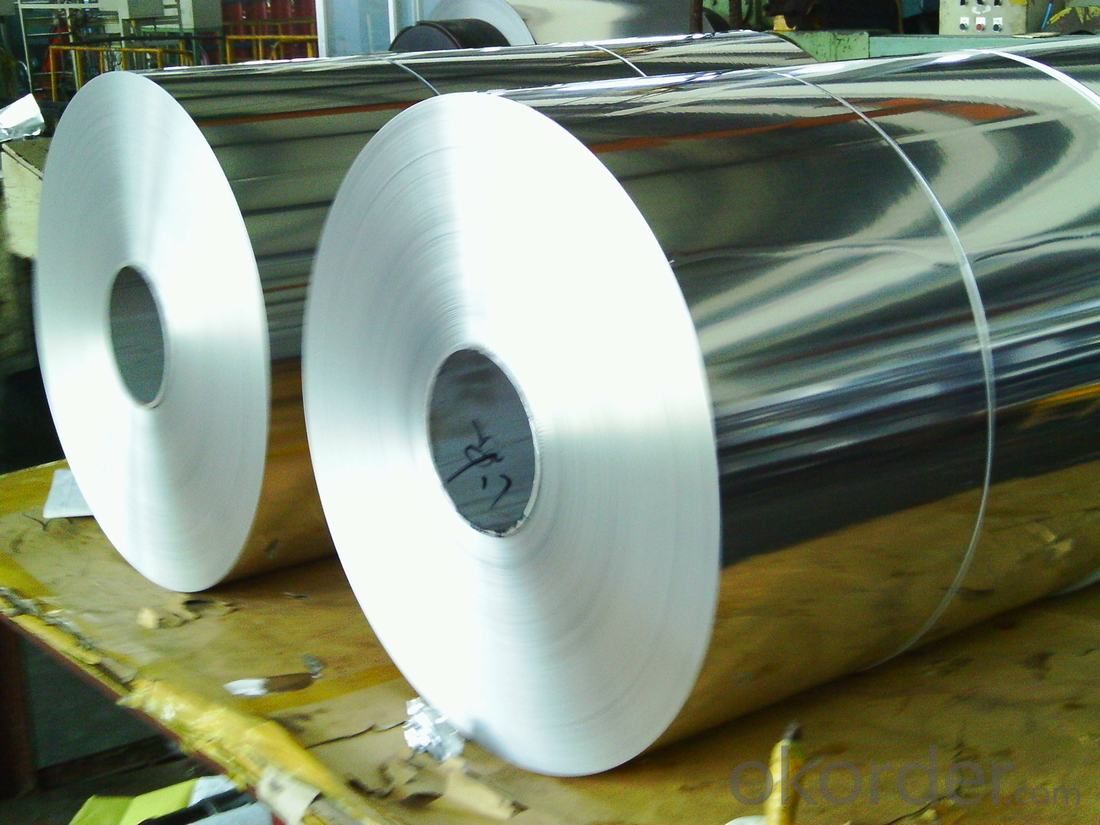
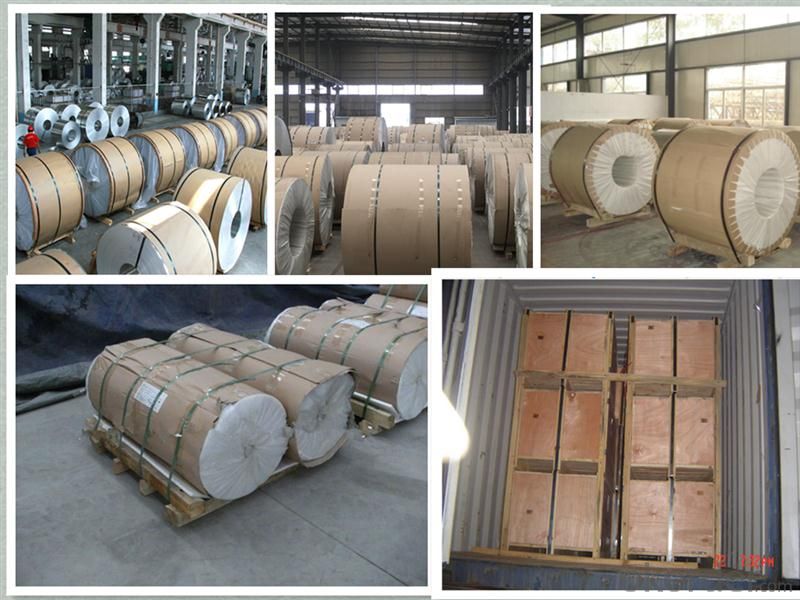
- Q: Can 101 aluminum sheets be embossed or textured?
- It is possible to emboss or texture 101 aluminum sheets. Aluminum is a highly adaptable material that can be easily molded and formed. To emboss or texture aluminum sheets, pressure or heat is applied to create patterns that are either raised or recessed on the surface. There are different methods available for this process, including mechanical embossing or chemical etching. As long as the aluminum sheets are of suitable thickness and good quality, it is feasible to achieve desired designs and patterns through embossing or texturing.
- Q: This question asks for a list of aluminum sheet types suitable for exterior applications, indicating a need for knowledge on construction materials.
- <p>Aluminum sheets for exterior use come in various types, each with specific properties and applications. Some common types include: 1. Mill Finish Sheets: These have a natural aluminum finish and are corrosion resistant. 2. Anodized Aluminum Sheets: They offer enhanced durability and resistance to weathering. 3. Painted Aluminum Sheets: These are coated with a protective paint layer for improved aesthetics and weather resistance. 4. Embossed Aluminum Sheets: They provide a textured surface and are used for both aesthetic and functional purposes. 5. Perforated Aluminum Sheets: These have holes and are used for ventilation and light filtration. 6. Aluminum Composite Material (ACM) Sheets: These are lightweight and used for cladding due to their strength and low weight. Each type is chosen based on the specific requirements of the project, such as weather conditions, aesthetic preferences, and structural needs.</p>
- Q: Is the value of specific heat capacity of aluminium higher or lower than the standard value? Why?
- This is not my expertise. As I have been researching this the past hour to re-educate myself, no one else has answered you. So, I will attempt to get you in the right direction by what I found. I found two specific heat values for Aluminum. The recent one is from wikipedia with the other an old text someone quoted. The specific heat of aluminum, cAl, is 0.897J g?1 K?1; this is, 0.214cal g?1 °C?1. [per wikipedia] AND The specific heat capacity of aluminum as 0.215 kcal/(kg C) [The Handbook of Chemistry and Physics, p. D-217, 1979]. Standard Value was the harder item. I found it is referred to as Hro [Where the o is a circle]. I could only find it referring to water. To measure heat for each metal, it was always compared to the heating water, which is used as the standard. I'm guessing its like a thermometer filled with mercury. The mercury gets heated and the lines are marked to tell you how hot the air is. Hope that helps... Maybe someone else will jump in...
- Q: What are the common thicknesses available for aluminum sheets?
- The common thicknesses available for aluminum sheets range from 0.006 inches to 0.25 inches, with standard options including 0.016, 0.020, 0.025, 0.032, 0.040, 0.050, and 0.063 inches.
- Q: I know that aluminum doesn't belong in the human body. As a canister to hold liquids which will be consumed later, is aluminum good or bad to use?
- Aluminum Drinking Bottles
- Q: What is the composition of 101 aluminum sheets?
- The composition of 101 aluminum sheets typically refers to the alloy used in their manufacturing. Aluminum alloy 101 is a commercially pure aluminum with a minimum of 99.0% aluminum content. It does not contain any significant amounts of other elements, making it the most basic and pure form of aluminum available. This high purity level makes it highly resistant to corrosion and provides excellent electrical conductivity. 101 aluminum sheets are often used in applications where a high degree of electrical conductivity or corrosion resistance is required, such as in electrical wiring, heat exchangers, and chemical processing equipment.
- Q: some car manufactures use aluminium car body on a steel sub-frame. explain, using electrode potential what would happen if a weak acid was to become trapped in the space between these two metals!! any current plzz help, its for my assignment, and i dont understand
- Most reactive metal will corrode first.
- Q: This question asks about the structural integrity and suitability of aluminum sheets for use in the construction of high-rise buildings.
- <p>Aluminum sheets are not typically used as the primary structural material in high-rise buildings due to their lower strength compared to steel and concrete. However, aluminum is known for its high strength-to-weight ratio, making it suitable for non-structural applications such as facades, window frames, and roofing. In high-rise construction, aluminum can be used in combination with other materials to provide a lightweight and aesthetically pleasing exterior while maintaining structural integrity with stronger materials like steel and concrete.</p>
- Q: Are the aluminum sheets corrosion-resistant?
- Yes, aluminum sheets are corrosion-resistant. Aluminum naturally forms a protective oxide layer when exposed to oxygen, which helps to prevent corrosion. This oxide layer acts as a barrier between the aluminum and the surrounding environment, making aluminum sheets highly resistant to corrosion. Additionally, aluminum sheets can be further treated with various coatings or anodizing processes to enhance their corrosion resistance even further. Therefore, aluminum sheets are a popular choice for applications where corrosion resistance is a critical requirement.
- Q: Are aluminum sheets suitable for aerospace applications?
- Yes, aluminum sheets are suitable for aerospace applications. Aluminum is widely used in the aerospace industry due to its lightweight, high strength-to-weight ratio, corrosion resistance, and excellent thermal conductivity. It is used in aircraft structures, wings, fuselages, and other components to provide durability and fuel efficiency.
Send your message to us
Aluminum Sheets Missouri - Cold Rolling 1100/1050/1020/1060 Aluminum Coils for Decoration
- Loading Port:
- China main port
- Payment Terms:
- TT OR LC
- Min Order Qty:
- 5 m.t.
- Supply Capability:
- 600 m.t./month
OKorder Service Pledge
Quality Product, Order Online Tracking, Timely Delivery
OKorder Financial Service
Credit Rating, Credit Services, Credit Purchasing
Similar products
Hot products
Hot Searches
Related keywords
